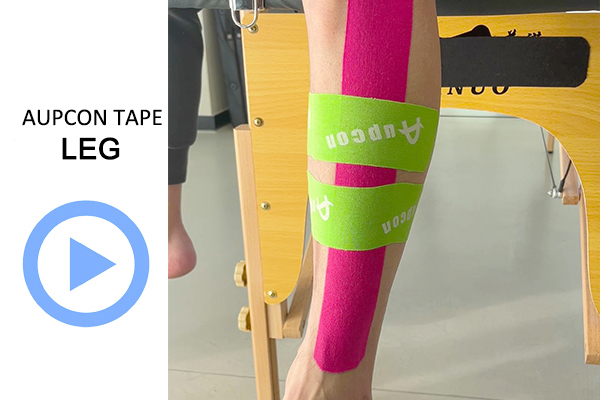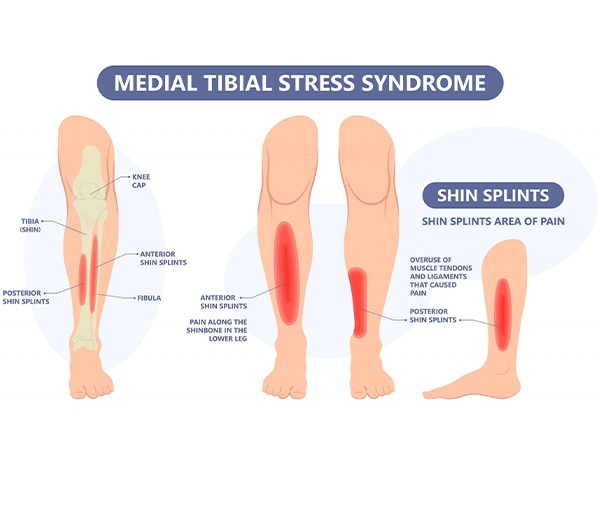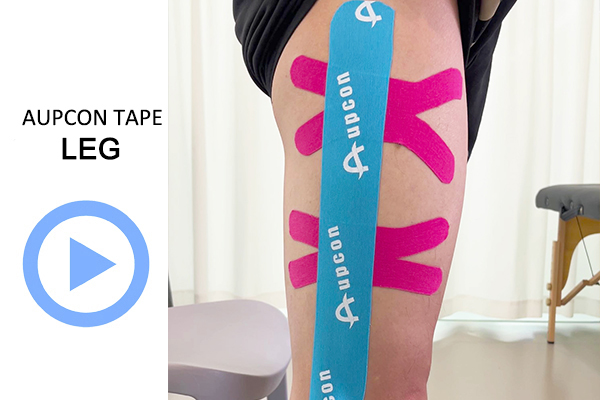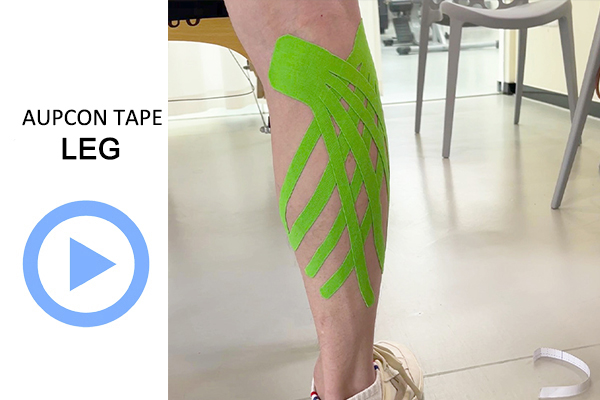How to use shin splints tape
Anterior Shin Splint Pain
Medial tibial stress syndrome, also commonly referred to as shin splints, is a common sports-related injury. Runners typically experience acute pain in the front or medial part of the calf along the tibialis anterior muscle after running. Shin splints occur when the tendons and muscles surrounding the shin bone become inflamed.
Follow this article to learn how to relieve and treat shin splint pain using shin splints tape.
To get the Aupcon tapes mentioned in the content: cotton kinesiology tape, synthetic kinesiology tape, nylon kinesiology tape, pre-cut kinesiology tape, punched kinesiology tape, kinesiology tape strips, etc., click to jump to our kinesiology tape product page for bulk purchase.
kinesiology tape Taping tips
- Clean your skin before applying to extend the life of the shin splints tape.
- To ensure a secure fit, round the edges of the tape to prevent it from falling off.
- Do not touch the glue surface when applying the tape to avoid affecting the stickiness.
- After applying, wipe the shin splints tape several times to make it stick firmly.
- Avoid prolonged use and replace it within 3-7 days.
- If there is an open wound on the calf, do not apply to the area.
How to use shin splints tape?
First, prepare an I-type shin splints tape fix it under the tibialis anterior muscle, and stretch it 50%.
The second kinesiology tape is stretched 50% in the middle and fits horizontally to the upper part of the tibia.
The third kinesiology tape is also stretched 50% in the middle and fitted horizontally under the second tape.
Please rub the kinesiology tape for shin splints after finishing the application to stabilize the adhesion to the skin.
WHAT IS A SHIN SPLINTS TAPE?
The primary role of kinesiology tape in treating shin splints
1. Relieve calf muscle pain
2. Provide mild stability and support to tibialis anterior muscle
3. Improve blood circulation and reduce inflammation
4. Correctly adjust activities during recovery
The main application of kinesiology tape
Shin splints tape is widely used to treat tibialis anterior pain, inner shin splint pain, shin splints posterior pain, etc.
Precautions for taping
If your skin develops allergic symptoms, please stop using it!
Cotton kinesiology tape
for anterior shin splint pain
→
Frequently Asked Questions
Shin splints, commonly known as medial shin splint syndrome, are a common sports injury among runners. Shin splints occur when the muscles, bones, and connective tissues are overworked, such as when high-impact activities (running, jumping, playing football, playing basketball, etc.) cause the calf muscles to swell and put more pressure on them.Using shin splints tape can effectively relieve.
The pain of shin splints is mainly concentrated in the front of the calf, between the knee and ankle. The main symptoms of shin splints include:
- A stabbing, shooting, or dull pain in the inner and outer shin areas, especially when running or walking.
- Mild swelling in the calf.
- Shin pain that continues after you stop being active.
Shin splints tape is made of cotton and spandex, a type of elastic physical therapy tape that can be used for a number of different purposes. These purposes include improving blood circulation, increasing body awareness, muscle activation, and more.
Taping close to the calf skin can help you increase your body’s awareness of its movements and adjust movements correctly during recovery. The kinesiology tape helps promote blood circulation through its unique application method, helps reduce inflammation, and provides support to reduce pressure on the body, effectively relieving pain and aiding recovery.It is also beneficial for Quad Strain Pain and Achilles tendinitis.
Other Body Parts
Learn to use shin splint tape with Aupcon! Reduce the occurrence of shin splints after running. We will release tutorials on different areas of shin splints in the future. If interested, please wait for our follow-up update on how to use kinesiology tape!





